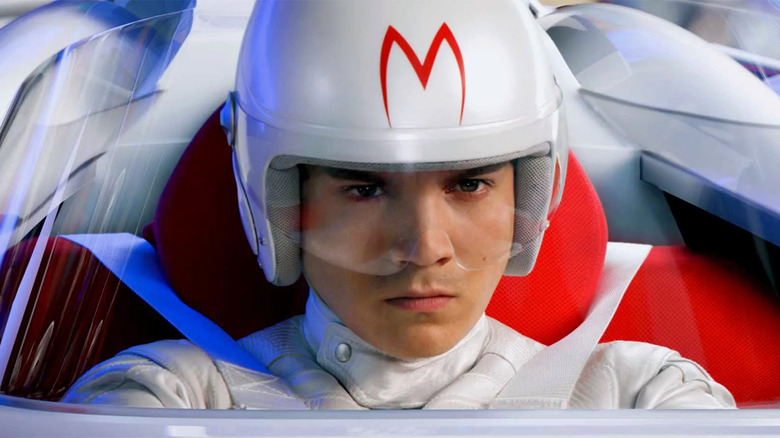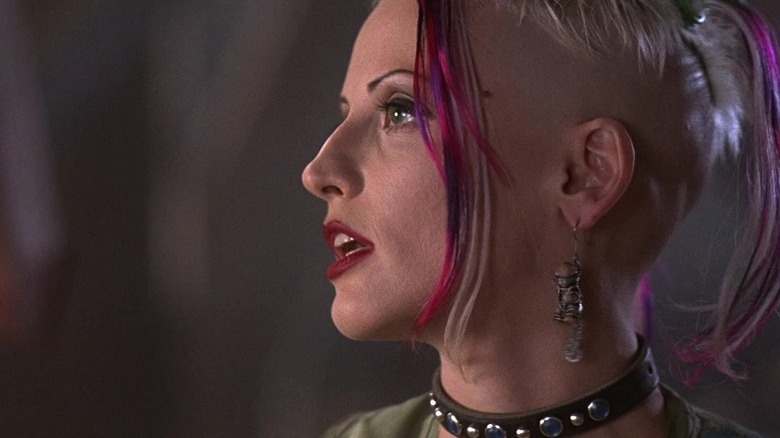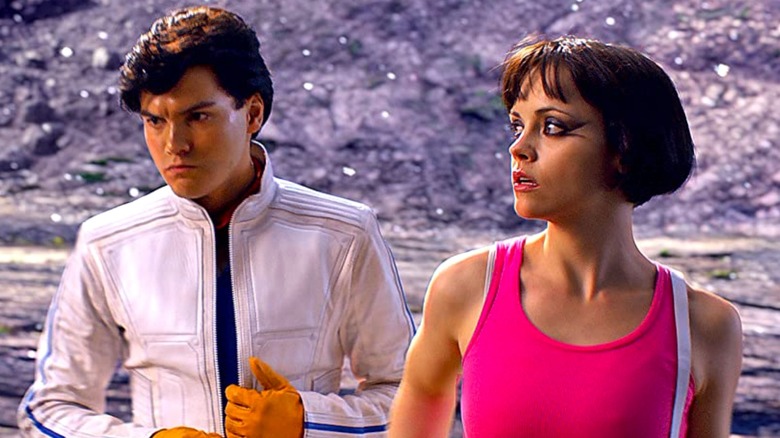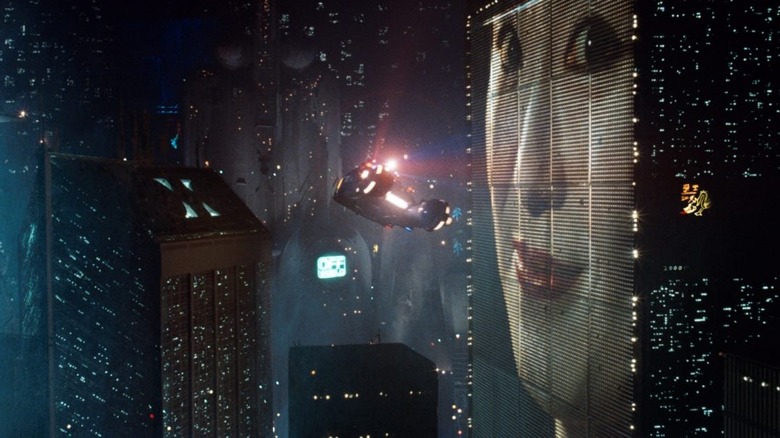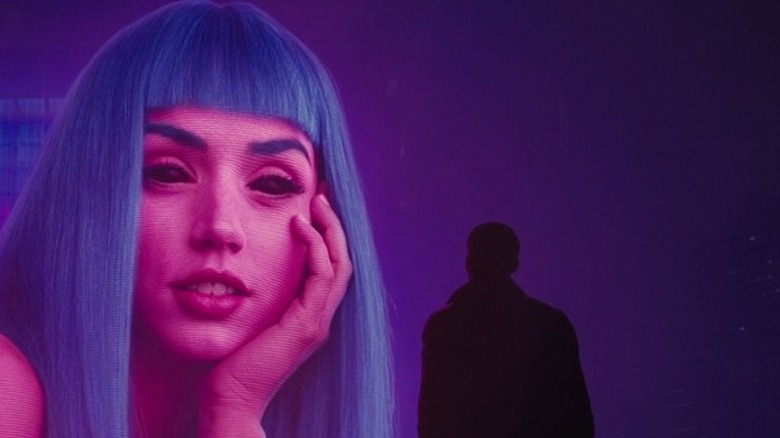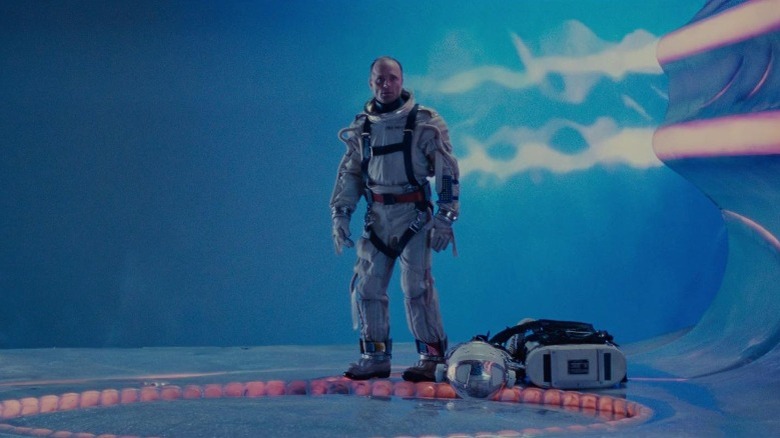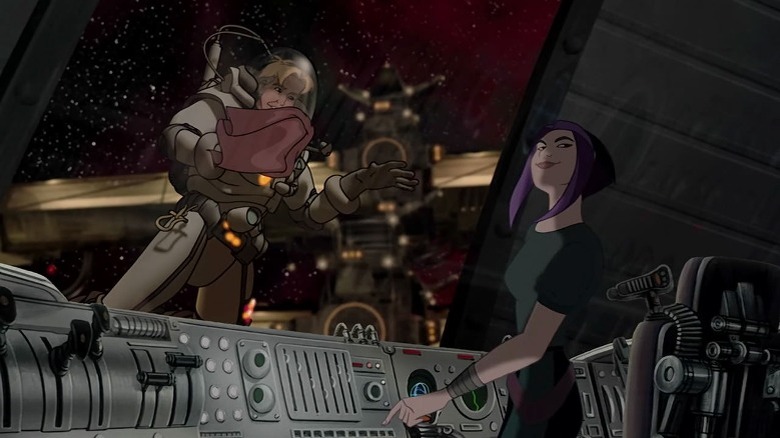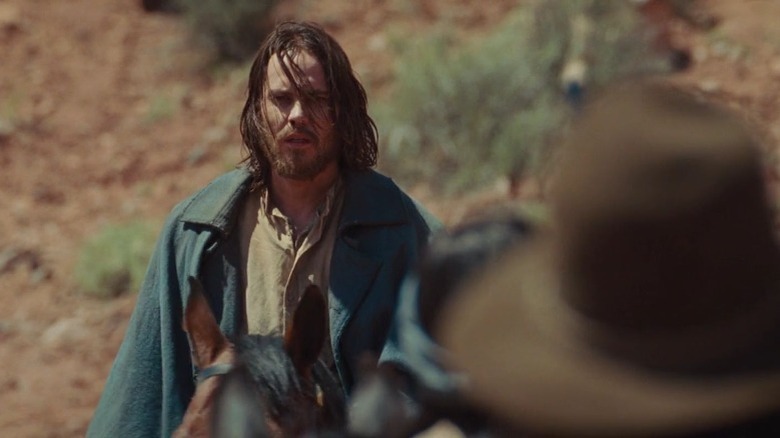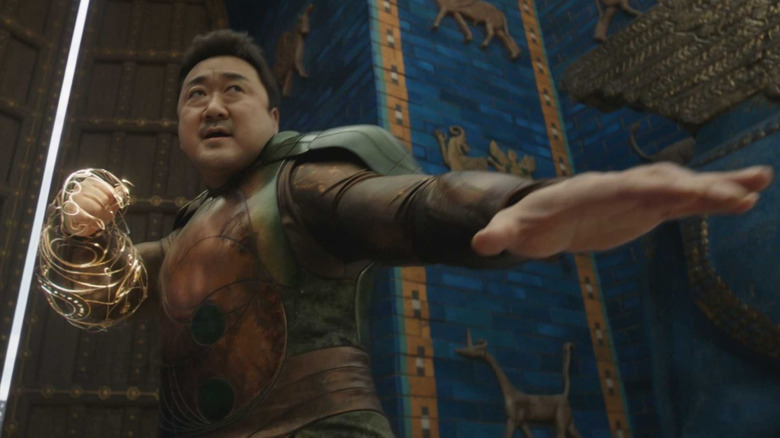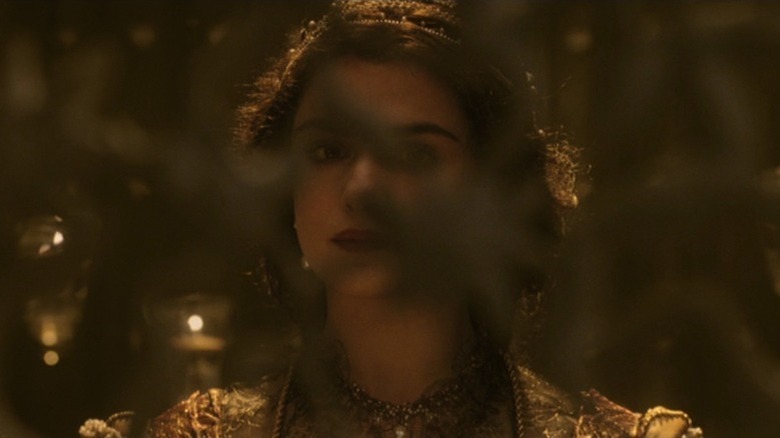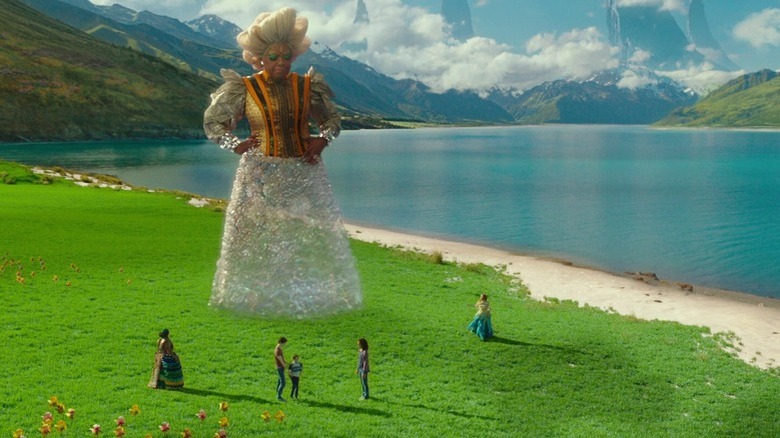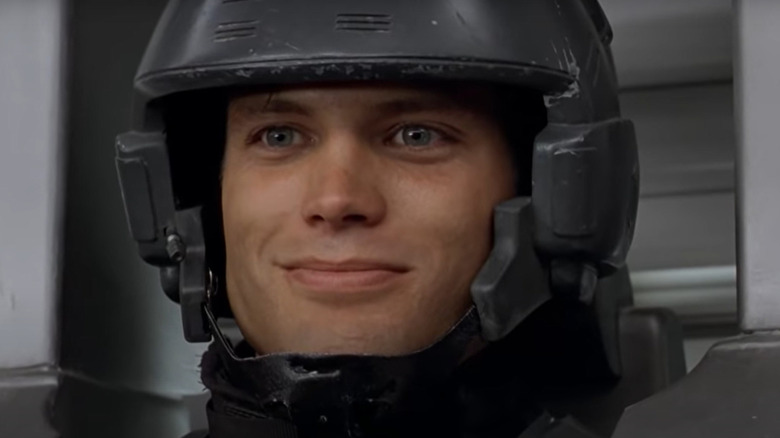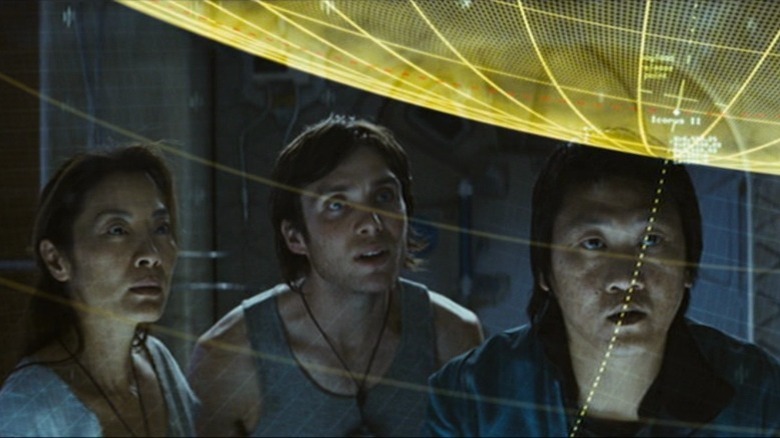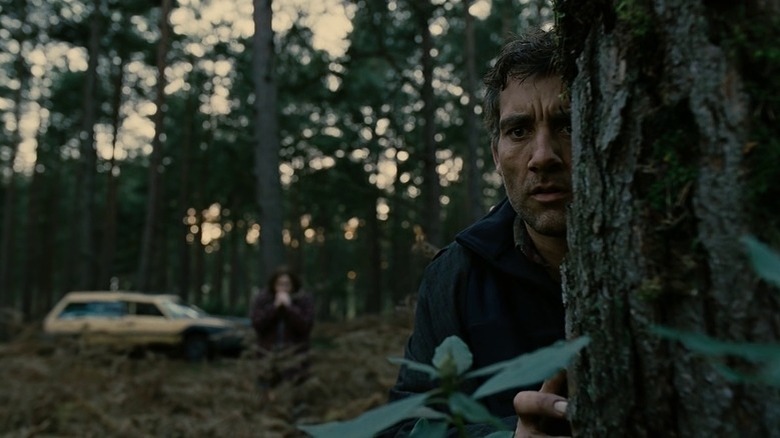Sci-Fi Movie Flops That The Creators Still Stand By
The capacity for sci-fi to pack imaginative exuberance, political richness, and sheer pulpy excitement into a dazzling cinematic adventure has been yielding masterpieces since the early days of the film medium, and it has allowed directors from Stanley Kubrick to Andrei Tarkovsky to Lizzie Borden to Denis Villeneuve to create some of their finest, most enduring work. At the same time, big-budget sci-fi can be a tough sell — the greater the worlds and setpieces and ideas being put forth, the higher the risk of financial underperformance.
Unsurprisingly, film history is peppered with sci-fi movies that flopped upon release, only for them to be reappraised and re-emerge as cult favorites years later. That was true of Fritz Lang's "Metropolis," the grandfather of all go-for-broke sci-fi monuments, and it has been true of countless ambitious and unique cinematic visions in the century since. No matter how hard the movies below may have flopped, the filmmakers behind them have all stood by their worth and sometimes even offered explanations for the lack of box office glory. Here are some sci-fi flops that still have a place in the heart of their creators.
Tank Girl
Rachel Talalay's "Tank Girl" is now hailed as the anarchic sci-fi movie we need in our modern dystopia, but for a few years after its original release in 1995, it was largely known as a massive box office flop — to the point of dealing significant damage to the career of director Rachel Talalay. In a 2020 interview with Entertainment Weekly, Talalay admitted that she resented her adaptation of the eponymous British comic series for a long time. "It was a disaster. I couldn't talk about it for 10 years," Talalay said.
Over the years, however, "Tank Girl" overcame its initial lack of popularity and was adopted by a legion of fans as a shining example of feminist, countercultural, avant-punk sci-fi cinema. As Talalay found out how much the movie meant to so many people, her relationship to it changed as well, until she finally stopped feeling vexed by its commercial failure. Eventually, she came to a momentous realization: "I wasn't embarrassed by it, I was embarrassed by this feeling of this massive movie jail I was still in."
"Tank Girl" is a divisive film to this day, but Talalay now stands proud of its abrasiveness, and she embraces the fact that not everyone loves it. "I always said, 'I want to make a film that you give it either a one or a ten,'" the director told EW.
Speed Racer
After taking the world by storm with "The Matrix," the Wachowskis could have become the world's mightiest blockbuster tycoons. Instead, they spent the following two decades using the cachet afforded by their landmark 1999 hit to make weirder, more imaginative, more unruly films than anyone else in the U.S. film industry was making at that budget level. The epitome of their visionary anti-commercialism was arguably 2008's "Speed Racer" – the best Hollywood anime adaptation, even though mainstream audiences didn't know what to make of its revolutionary sugar-rush aesthetics.
As Lana and Lilly told Collider in a 2012 interview, they knew that "Speed Racer" would be a huge risk, because it was expressly intended to break rules. "If you go to an art gallery, particularly a modern art gallery or art museum, or any art museum, you will experience an unbelievable range of aesthetic possibilities, and in cinema pretty much every movie looks exactly the same," Lana Wachowski said. "We knew that adults cannot accept challenges to their conventional aesthetic, the aesthetic that they are bonded to, adults, if you sort of assault that aesthetic they will really rage in this primitive way." As ever, the Wachowskis were ahead of their time — "Speed Racer" flopped in theaters in 2008 but became a massive cult favorite.
Blade Runner
As director Ridley Scott revealed to Total Film Magazine in a 2023 interview, from the moment he began working on "Blade Runner," he was certain of the project's value, and he held on to that certainty as studio executives kept trying to strong-arm him into commercial compromises. "I knew I was making something very, very special. So I would never take no for an answer. But they didn't understand what they had," Scott said. Now, with the film having gone on to influence virtually everything that came after it in the sci-fi genre, Scott has a message for the "Blade Runner" critics who wrote off the film four decades ago: "Go [expletive] yourself."
Despite his righteousness when it comes to his most retroactively acclaimed film, Scott also learned from the commercial failure of "Blade Runner" and the initial mixed critical reception to never take success for granted. He framed Pauline Kael's notorious pan of the film and hung it on the wall of his office, keeping it there for decades to always remember its lesson, which he relayed to Total Film like so: "When you think you've got it, you don't know [expletive]."
Blade Runner 2049
Denis Villeneuve has more than proved his mettle as a commercially dependable tentpole filmmaker at this point, having managed to do the previously thought impossible and turn Frank Herbert's "Dune" into a megahit Hollywood franchise — but there was a moment when it seemed like his sensibility was way too strange and contemplative for the mainstream. Specifically, when "Blade Runner 2049" grossed a mere $276 million worldwide against a budget over $150 million, Villeneuve himself realized that he'd done something very financially reckless.
"When you're working on a film you're in a bubble, and it was only when I came out that I realized we had made a monster," the director told The Telegraph in early 2018, fresh off box office underperformance. He recalled screening the film for producers and hearing a flattering yet concerning gut reaction from one: "The lights came up, and he turned around and said, 'We've just made the most expensive art house movie in cinema history." More than anything, it was an opportunity to get away with making something completely off-kilter within the Hollywood machine, and he took it. "Let's just say it would not be a good idea for me to make a movie like that twice," Villeneuve quipped.
The Abyss
James Cameron's name is, of course, synonymous with box office success. But when he took his first stab at mega-budget filmmaking with "The Abyss," it wasn't the most financially auspicious beginning. The deep-sea-set 1989 film grossed only $90 million worldwide against a budget half that size — an underperformer by Hollywood standards, and all the more so by what would become Cameron's. Even as he was making it, Cameron felt the weight of the challenge. "It wasn't kind of a slam dunk in the way 'Aliens' was," he said at a 2023 Beyond Fest panel (via IndieWire). "Like, we just knew 'Aliens' worked. This one, we didn't know exactly how it was going to work."
In the end, after some struggles with focus group testing — which he'd never dealt with before and didn't know how to navigate — Cameron managed to make something in line with his ambitious vision, even though it almost killed him. "It's the film I intended to make, if nothing else," he said. "But I actually think that you see how a lot of the film came together and how it truly is a proper heir apparent to 'The Day the Earth Stood Still,' which was what my intention was."
Titan A.E.
Don Bluth is a living legend, both for his films that hit it big with audiences — including "An American Tail," "Anastasia," and "The Land Before Time" — and for the ones that didn't. Arguably the defining icon of against-the-grain, anti-Disney integrity in American animation, he remained a beacon of inspiration throughout his career even when his work didn't commercially perform to standard — or even when it full-on flopped, as was the case of "Titan A.E."
An original space adventure melding together cel animation and computer-generated graphics, "Titan A.E." was co-directed by Bluth and Gary Goldman, and it was the first film in Bluth's career to make extensive use of CGI. After grossing a disastrous $36 million on a budget of nearly $100 million, it also became Bluth's last film. "Titan A.E." has been reappraised by animation fans since then, but its commercial failure makes more sense when you consider that Bluth himself was essentially pushed into it by Fox Animation.
Bluth told the Los Angeles Times in 2022 that he was asked to board the project, despite a lack of familiarity with either CGI or sci-fi. "It was sort of me doing something that wasn't really in my DNA," Bluth said. Despite the newness of the endeavor and his belief that the film's story might be better-suited to live action, Bluth put in as much love into the project as ever: "I tried as much as I could to make it beautiful to look at."
John Carter
Directing "Finding Nemo" and "WALL-E" is enough to mark any director as a master, but like many animation directors making the transition to live action, Andrew Stanton found himself back in rookie mode when directing "John Carter" — a movie to which he brought great passion, unflagging idealism, and not a lot of good business sense. Accustomed to the more retool-friendly story development process at Pixar, Stanton oversaw his long-gestating passion project, an adaptation of Edgar Rice Burroughs' "A Princess of Mars," with a decidedly unorthodox attitude — including ample scheduled time for reshoots.
A combination of factors — ranging from executive interference to convoluted marketing to Stanton's lack of experience with the live-action blockbuster pipeline — resulted in the film, budgeted at $300 million by some estimates, grossing just under that worldwide. In the years since, it's gained a devoted following, but even at the time, Stanton's affection never waned. "The ennui you have after a huge success when it's all over is exactly the same as the ennui you have when it's a bomb," the director told the Los Angeles Times in 2012. "You loved the doing. You've spent every waking moment thinking about its birth, worrying about it, raising it. It's an empty nest syndrome. Whether your kid went to college or went to jail, it's an empty nest."
Eternals
Few directors could claim to have suffered a starker whiplash within a single year than Chloé Zhao, who went from collecting Oscars for Best Picture and Best Director in April 2021 to weathering a massive critical and commercial failure in November that same year. But contrary to what critics of "Eternals" might think, Zhao doesn't place it in a separate category from "Nomadland" when thinking about her own career.
"I have been on the receiving end of somewhat consensus, and divisiveness about my work. Neither of them has any real influence on me as an artist, because every time I'm lucky enough to create, I learn from the process," Zhao told Empire in 2022, shortly following "Eternals'" worst-yet box office and critical performance for a Marvel Cinematic Universe film.
As she had done repeatedly throughout the press cycle for "Eternals," Zhao emphasized that the movie was all hers, and that she stood by all of it, with none of its more criticized aspects being simply attributable to the "Marvel process." "When you take this to extremes that are seen as opposition — the world I come from and the world of Marvel, that has been divided in a way that's so unfair and unfortunate — and to merge the way we did, I actually see the reaction as a testament to how much we had merged with each other; how uncomfortable that might make people feel," Zhao said.
The Fountain
Darren Aronofsky's entire career has arguably been built on yanking people out of their comfort zones, for better or worse. His most popular movies, from heady psychological dramas to nauseating horror flicks, have struck a chord with audiences by showing them something they weren't used to, and reaching untapped emotional depths as a result. Conversely, his more divisive and less financially triumphant efforts have been simply too alienating for mainstream tastes. The latter was true of "The Fountain" — also known as the one in which Aronofsky convinced Warner and New Regency to give him $35 million to make an arthouse film about death.
Suffice to say it wasn't a box office phenomenon, but like every Aronofsky film, those who did take to it were nothing short of obsessed. Although the director has confessed to spending more money on "The Fountain" than such an experimental project really warranted, that's where his regrets stop. "It was the film I wanted to make. Of all my movies, to the people that are fans, it's almost like a cult religion," Aronofsky said during his masterclass at the 2012 Marrakech International Film Festival (via IndieWire). "So I think it works for a much smaller audience because ultimately the film is about coming to terms with your own death, which is not a big commercial idea for a lot of people."
A Wrinkle in Time
"A Wrinkle in Time" is an outlier in Ava DuVernay's filmography — a big-budget tentpole family film with splashy VFX and even splashier costume and production design. Fans of the director have often wondered what attracted her to the project, especially given that the final product, while one of the most underrated Disney movies ever, doesn't quite allow DuVernay to display as much personality as she has on smaller-scale projects like "Selma," "Origin," and "When They See Us."
As it turns out, DuVernay herself is very much aware of the dissonance. As she revealed on the Team Deakins podcast in 2023 (via The Playlist), she made "A Wrinkle in Time" precisely because she wanted to have a studio blockbuster under her belt — to play with a bigger budget, deal with studio exec demands, work with a committee of artists, and see how she felt. In the end, she learned that she'd rather stick to smaller auteur work, but was still deeply grateful for the experience. "I was able to walk away with that — having worked with a lot of beautiful craftspeople and cast, and to design fantasy costumes and work with VFX in a way that I'd never really had to work with — and understand what that studio system was like," DuVernay said.
Starship Troopers
A serious contender for the title of most misunderstood film ever, Paul Verhoeven's "Starship Troopers" was taken at face value — and roundly dismissed — by critics and audiences in 1997, with very few realizing it was supposed to be an over-the-top satire of American action films and their underlying fascist attitudes. The intervening decades of hindsight have been extremely kind to the film — for one thing, it more-or-less exactly predicted the Iraq War zeitgeist many years before the fact — but Verhoeven himself was never less than confident in the film's value.
Verhoeven, who's been repeatedly defending the film against wrongheaded interpretations for years, did so again in a 2017 interview with Digital Spy. "Basically the political undercurrent of the film is that these heroes and heroines are living in a fascist utopia — but they are not even aware of it! They think this is normal," he said. Although the myopic reception hurt at the time, however, it was nothing Verhoeven hadn't dealt with before — and he powered through it as usual. "It's difficult to swallow but ultimately I always survive okay and do the work," the director said. "The only way to overcome these depressing things is to make another movie."
Sunshine
Alex Garland has always been an unusually outspoken filmmaker, and in a 2015 interview with The Playlist, shortly following his directorial debut with "Ex Machina," he got candid about his conflicted relationship to his many previous works as a screenwriter. Those included Danny Boyle's space mission thriller "Sunshine," which flopped massively in 2007.
Garland admitted that he didn't feel the "Sunshine" team worked perfectly in sync, and he could see "different movies being made simultaneously" within the film — resulting in, among other things, an ending he had issues with. He added that, in his opinion, the film's biggest problems stemmed from his screenplay rather than Boyle's direction. Despite his regrets over not fixing perceived problems in the script, however, Garland went on to clarify that his comments were coming from a place of affection. "I love Danny. I actually loved the film. Whatever I say about 'Sunshine,' and its problems. I actually loved 'Sunshine.'" It should come as little surprise that Boyle and Garland are now reuniting for the long-awaited horror sequel "28 Years Later."
Children of Men
It's hard to imagine that "Children of Men," one of the defining films of the 21st century so far, could have once been thought of primarily as a box office disappointment. But so it was in 2006, when Universal largely failed to market — and the public largely failed to embrace — Alfonso Cuarón's prophetic dystopian account of an Earth laid to waste by an infertility epidemic, and "Children of Men" proved that even masterpieces can bomb.
Cuarón's film has only become more urgent, more moving, and more impressive in the years since; it's such an inarguable modern classic that the stain of its commercial failure has all but disappeared from the public consciousness. Reflecting on the film's messy shoot and open-hearted political righteousness in a 2016 New York Magazine anniversary piece, Cuarón refused to deem it prescient or ahead of its time, noting that its myriad social horrors were already a reality in 2006. "This thing was not imagination," the director said. "People were talking about those things, just not in the mainstream!" Still, he did concede that "Children of Men" had a valuable message for our increasingly despairing times: "What's really relevant now is to stop being complacent."
